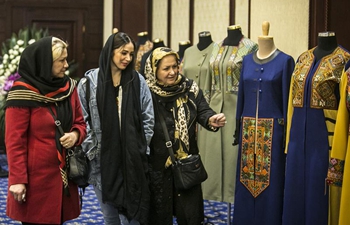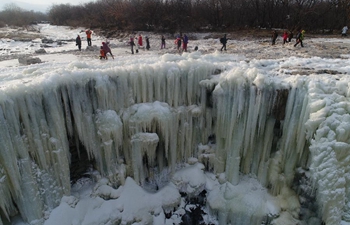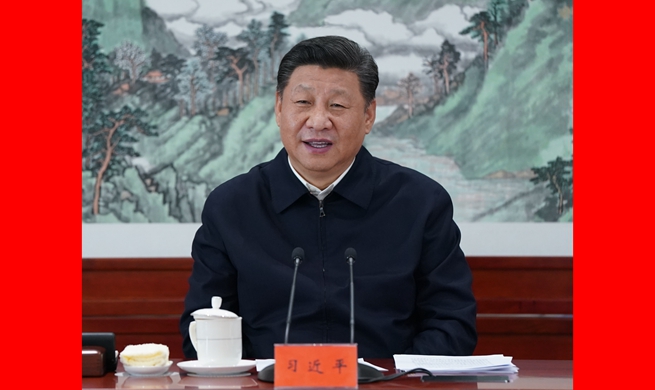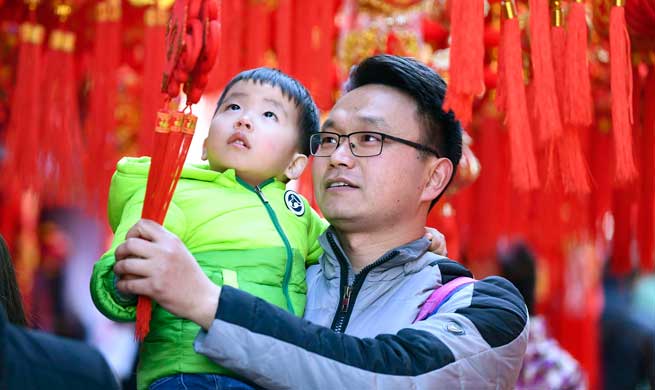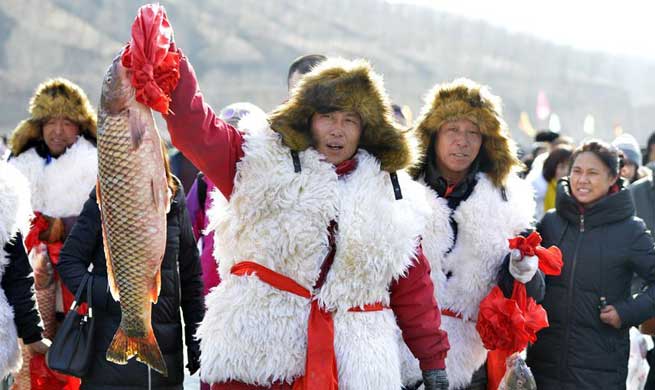ISTANBUL, Jan. 27 (Xinhua) -- A military operation against jihadists in the Syrian province of Idlib is all the more likely following Wednesday's meeting between Turkish and Russian presidents, analysts told Xinhua.
A joint Turkish and Russian offensive or a Syrian army operation with Russian backing should be expected probably following an upcoming trilateral summit, said Celalettin Yavuz, a security and policy analyst.
The Turkish, Russian and Iranian leaders will meet again next month in Russia in efforts to seek a political settlement of the Syrian conflict under the so-called Astana process.
Moscow is disturbed that the Sochi deal with Ankara has failed to produce the desired result in Idlib, said Yavuz who teaches at Istanbul Ayvansaray University.
Hayat Tahrir al-Sham (HTS), an al-Qaida-linked jihadist group, has now gained control of no less than two thirds of the Idlib province after clashes with Turkey-backed rebel groups earlier this month.
The HTS' increased control over Idlib meant the failure of the Sochi deal inked by Ankara and Moscow in September last year.
Under the deal, Turkey should have persuaded the radical Islamist groups by mid-October to withdraw into the inner parts of Idlib to create a 10-15-km-wide demilitarized zone around the province.
"Russia and Turkey may jointly carry out a limited operation to force a demilitarize zone on the jihadists," said Hasan Koni, a foreign policy analyst with Istanbul Kultur University.
Turkish President Recep Tayyip Erdogan met on Wednesday with his Russian counterpart Vladimir Putin over Syria, with the focus on Idlib.
Putin said more action by both Ankara and Moscow was needed to "liquidate the actions of the terrorist groups." He also underlined that both countries think terrorists must be jointly fought wherever they are, including in Idlib.
On his way back to Turkey, Erdogan told reporters that the radical rebels in Idlib is a source of discomfort for Moscow and that discomfort was communicated to Ankara. "We must overcome these annoyances as soon as possible," he added.
Moscow, a staunch supporter of Damascus, tacitly agreed to see the rebel groups patronized by Ankara as "moderate rebels" rather than as terrorists.
"It's vitally important for Russia that the rebels in Idlib pose no threat to its military bases in Syria," Koni said.
He feels, however, that Ankara may not get much involved in any military operation against the jihadists until the end of March when Turkey will have local elections.
Radical groups may well conduct terror attacks in Turkey if Ankara would get actively involved in the fighting, Koni said, maintaining that Putin would understand Ankara's position.
"Risks are getting bigger for Turkey," he cautioned.
Based on the Astana deal, the Turkish army has established 12 observation posts around Idlib, and the military posts were reinforced with armored vehicles and troops amid rising tension at the end of last year.
The Turkish army has also sent reinforcements along the Idlib border in recent weeks.
Ankara's involvement in the operation would be inevitable in case the HTS should attack Turkish observation posts, argued Yavuz.
"But Damascus would not like it should the Turkish military take control of Idlib," he added.
The Turkish military and its allied Syrian rebels have already taken control of a significant portion of the Syrian territory along its border in past two cross-border operations against the Islamic State and the Kurdish militia.
The Syrian government has denounced the Turkish military presence on its soil as occupation and violation of the international law.
Other than the HTS, most of the Islamist groups in Idlib are close to Turkey, which supported rebel groups to topple the Syrian government until it began to cooperate with Moscow in 2016.
Koni feels that Russia, backed by the Syrian army, may also conduct the operation without Ankara's involvement, though he expects the offensive to be limited due to Turkey's sensitivities.
The Sochi deal was signed as a result of Ankara's efforts to dissuade Moscow from launching an offensive against the jihadists in Idlib at the time.
Moscow and Damascus have long been vexed by occasional rebel attacks on their military positions and bases, which the Sochi deal also aims to prevent.
In case Russia and Syria would launch a major attack to kick the jihadists out of Idlib, they would attempt to flee to Turkey, a scenario Ankara cannot tolerate, remarked Koni.






